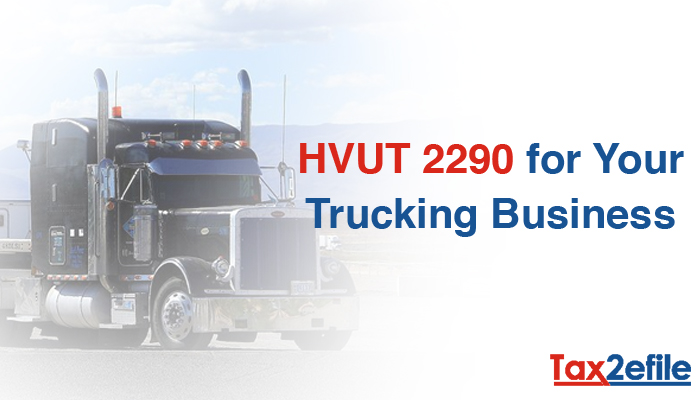- September 6, 2024

Fleet vehicles are the cars that an organization, public utility, or government agency primarily uses to transport people and cargo. These vehicles are the foundation for many businesses and range in type from rental cars to taxi cabs, public buses, trucks, and more. The traditional view of the fleet vehicle is a semi-tractor and a 53-foot trailer. These types of vehicles make up a large percentage of the fleets in the United States and might comprise both small and medium-sized vehicles.
What are Fleet Vehicles?
Fleet vehicles are motorized assets used by a company to transport people and products, conduct business, and assist in its daily activities. A fleet could be a group of rental cars, service vans, rental cars, or taxicabs. Anything that runs on gas, diesel, or aviation fuel could be a part of a fleet. A fleet can be any number of vehicles, be it two, five, ten, or even fifty or more. In general, the fleet vehicles are managed and owned by a particular business and are maintained and operated by the business employees for work. These fleet vehicles can be used for claiming ownership taxes.
Taxes for Fleet Vehicles From the IRS
The HVUT or the heavy vehicle use tax is a fee that has been assessed annually on the heavy vehicles, that are running on the public highways by the Internal Revenue Service. In order to come under the radar of the HVUT taxes, these vehicles should have a registered gross weight that is equal to or more than 55,000 pounds.
This gross weight of the fleet vehicle also includes the weight of the actual unloaded weight of the vehicle that has been completely equipped for service, the actual unloaded weight of all the trailers and the semi-trailers that are fully equipped for service, and the weight of the maximum load that is customarily carried on the vehicle, or in combination with the vehicle.
If the vehicle’s gross weight is between 55,000 and 75,000 pounds, the HVUT would be around $100, plus an additional $22 per 1000 pounds over 55,000 pounds. For vehicles with a capacity of over 75,000 pounds, the maximum HVUT is around $550 per year.
What are the Vehicles that are Exempted From Paying HVUT Taxes?
Commercial vehicles that travel fewer than 5000 miles a day are exempt from paying the HVUT taxes. The agricultural vehicles that travel fewer than 7500 miles annually are also exempt from paying the HVUT taxes. Also, vehicles that are considered highway motor vehicles, such as mobile machinery that is used for non-transportation functions and vehicles that are specifically designed to operate for off-highway transportation and non-transportation trailers and semi-trailers, are exempt from paying the HVUT taxes.
The qualified vehicles meant for blood collection that the qualified blood collector organizations use are also exempt from paying the HVUT taxes. The exempt carriers are required to file the tax forms with the IRS, and also notify the local department of the motor vehicles to claim their exempt status.
HVUT Taxes Using Form 2290
Owners of Fleet Vehicles can report their fleet’s tax information using IRS tax Form 2290. Taxpayers can make use of Form 2290 to figure and pay taxes that are due on the highway motor vehicles with a taxable gross weight of 55,000 pounds or more that are used during the tax period. They can make use of IRS Form 2290 to figure and pay the tax due on the vehicle for which the owner has completed the suspension statement on Form 2290 if that vehicle has exceeded the mileage use limit during the tax period. Other uses of the IRS tax Form 2290 are as follows,

- Figure out and pay the tax due if, during the tax period, the gross weight of the vehicle increases and the vehicle falls under the new category.
- The form can be used to claim suspension from the tax when the vehicle is expected to be used for 5500 miles or less. This limit is 7,500 miles or less for agricultural vehicles during the tax period.
- Claim a credit for the tax paid on the vehicles that were destroyed, sold, stolen, or used for 5,000 miles or less, and this limit is about 7,500 miles or less for agricultural vehicles.
- IRS Form 2290 can be used to report the acquisition of a used taxable vehicle for which the tax has been suspended.
- Figure out and pay the tax due on a used taxable vehicle acquired and used during the tax period.
Who is Required to Pay and File the HVUT Tax Form 2290 with the IRS?
The Heavy Vehicle Use Tax is an annual fee imposed on heavy vehicles that operate on public highways at a registered gross weight of 55,000 pounds or more. The IRS will use this tax amount for maintaining the roads, managing divots and potholes, etc. The tax actually levels the playing field by ensuring that the operators of heavy trucks pay a little more for the highway department relative to other vehicles, such as light trucks and motorists.
All owners of fleet vehicles with a taxable gross weight of 55,000 pounds or more are required to file the HVUT Form 2290 electronically. The tax Form must include important information such as the business name, business address, employer identification number, details of the vehicle, including the Vehicle Identification Number, and the gross taxable weight of the vehicle.
Due date to File the HVUT Tax Form with the IRS
The due date to file the HVUT tax Form is from July 1st to June 30th, and the tax should be pre-parid for the coming year. The vehicles that are in use by 1st July, the deadline to file and pay the taxes is 31st August. The payment can be made by check, or money order and also can be paid electronically through the EFTPS ( Electronic Federal Tax Payment System). No proof of payment will be required for the newly purchased vehicle if the owner can furnish a copy of the bill of sale showing that the vehicle was purchased only in the last sixty days. This exception is for registration only; the HVUT tax return Form 2290 is still required and should be filed with the IRS. The taxes should also be paid by the last day of the month following the month of purchase of the fleet vehicle.
Exemptions for IRS Form 2290
Any highway motor vehicle that is registered or required to be registered in the owner’s name and has a taxable gross income of 55,000 pounds or more will be subject to the Federal Heavy Vehicle Use Tax. However, certain exemptions apply to file and pay these taxes, and these exemptions are as follows.
Who is required to get exemptions from the HVUT and not required to file Form 2290?
Fleet vehicles belonging to the Federal, State, and local governments, including the District of Columbia, are not required to file Form HVUT with the IRS. Vehicles belonging to the American Red Cross, Nonprofit volunteer fire departments, rescue squads, and ambulance associations are also not required to file Form 2290 with the IRS. Mass transportation authorities are also not required to file Form 2290 with the IRS.
Who is required to get exemptions from the HVUT and not required to file Form 2290?
Fleet vehicles belonging to the Federal, State, and local governments, including the District of Columbia, are not required to file Form HVUT with the IRS. Vehicles belonging to the American Red Cross, Nonprofit volunteer fire departments, rescue squads, and ambulance associations are also not required to file Form 2290 with the IRS. Mass transportation authorities are also not required to file Form 2290 with the IRS.
What are the vehicles that are exempted from the HVUT and not required to file Form 2290?
Fleet vehicles that are not considered highway motor vehicles, such as mobile machinery used for non-transportation functions and vehicles specifically designed for off-highway transportation, semi-trailers, and non-transportation trailers, are exempt from the HVUT and not required to file Form 2290. Vehicles belonging to qualified blood-collecting organizations are also included in this category.
Vehicles that are exempted from paying the HVUT but are required to file Form 2290
Commercial vehicles that travel fewer than 5000 miles annually and agricultural fleet vehicles that travel fewer than 7500 miles annually must provide a receipted Schedule 1 of Form 2290 and are exempt from paying the heavy vehicle use taxes.
New Tax Benefits for Fleet Vehicles
The new tax laws from the Internal Revenue Service offer new tax benefits for taxpayers. With the help of these tax deductions, it is possible to avail 100% tax deductions on the purchase price of the eligible vehicles. The tax laws have been revised in recent times to benefit both small and large businesses to offer every opportunity for small businesses to save their money. These Federal tax depreciation deductions are available for vehicles that are used in a business or trade and are also submitted for change without any prior notice.
The HVUT is a fee that is assessed annually on heavy vehicles that operate on public highways at a registered gross weight equal to or exceeding 55,000 pounds. Owners of fleet vehicles are required to file this Form with the due date and show proof of the stamped Schedule 1 copy to the authorities as required. It is also optimal to e-file the tax Form with the help of credible IRS-authorized service providers like Tax2efile and get a copy of a stamped copy of Schedule 1 handy to show as proof.


